|
<< Click to Display Table of Contents >> Using text styles |
  
|
|
<< Click to Display Table of Contents >> Using text styles |
  
|
Use the text styles to add text elements to your pages. In the Toolbox, you'll find templates for headings, text blocks, and combinations.
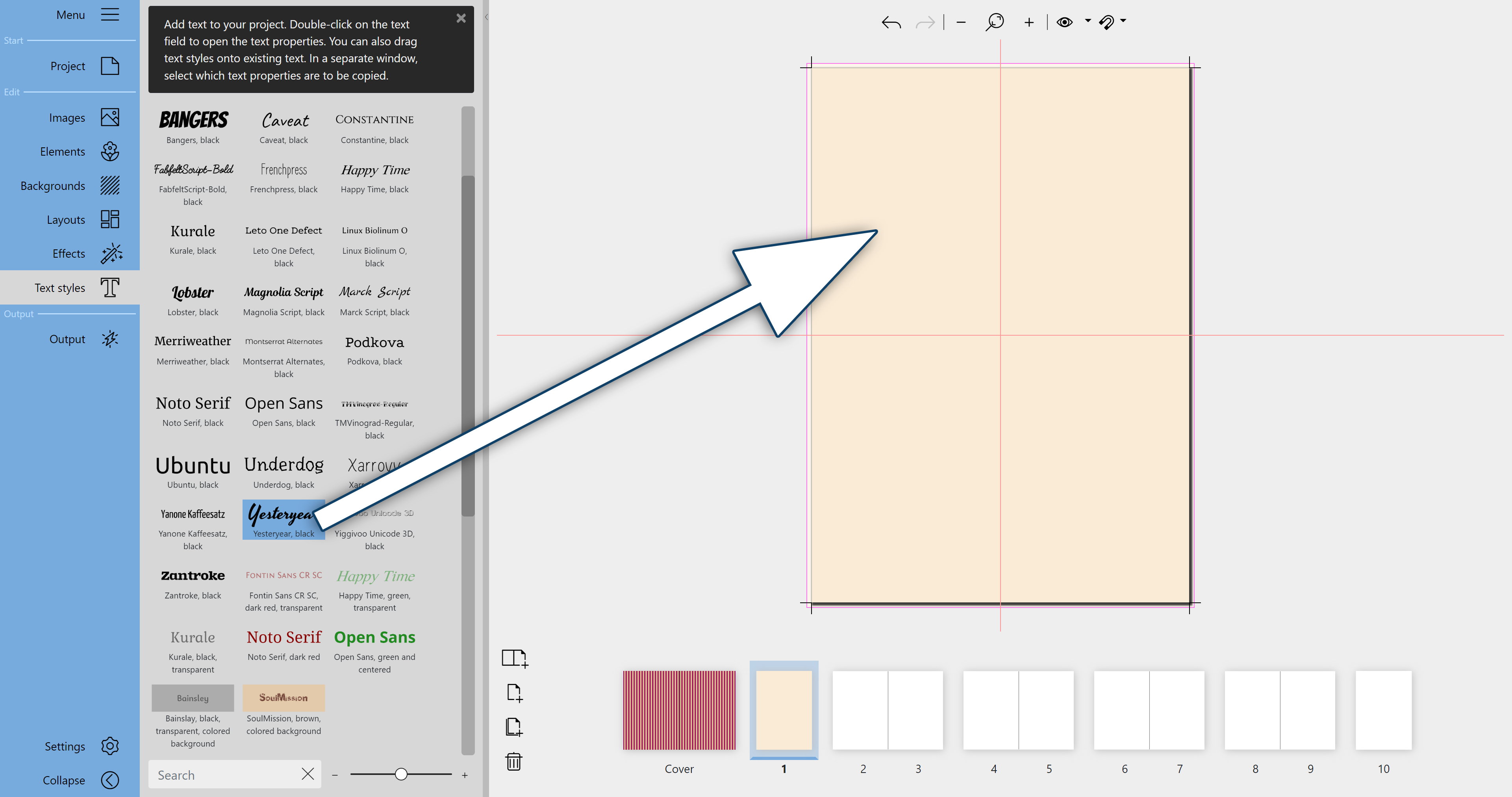
Drag heading from Toolbox to page in Page editor
Drag a text style from the Toolbox to your open page in the Page editor. Move the text style to the desired position with the mouse.
Note: You can also find a way to insert text with your own formatting into your book under the Elements menu item.
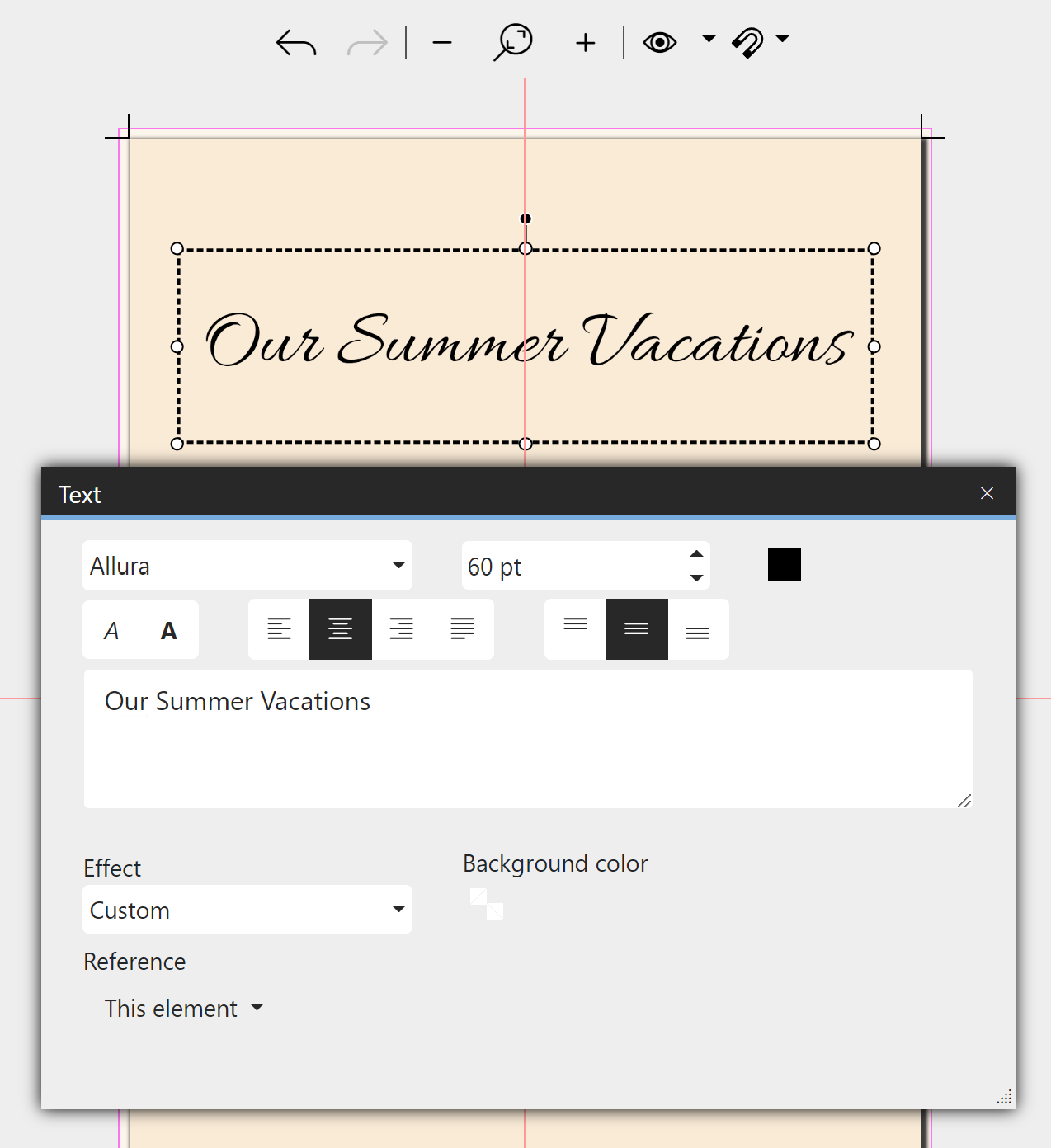 Text properties 2. Change labelingTo enter your own text, double-click the text element in the Page editor with the left mouse button. Or right-click the text element in the Page editor and choose Properties.Overwrite the existing text in the text box of the Properties window. 3. Customize font / font color / font size / formattingTo change the font, font color, font size, or alignment of a text style, double-click the text style element in the Page editor with the left mouse button. Or right-click the text element in the Page editor and choose Properties. You can also apply an effect to the text. Select it from the Effect selection list. |
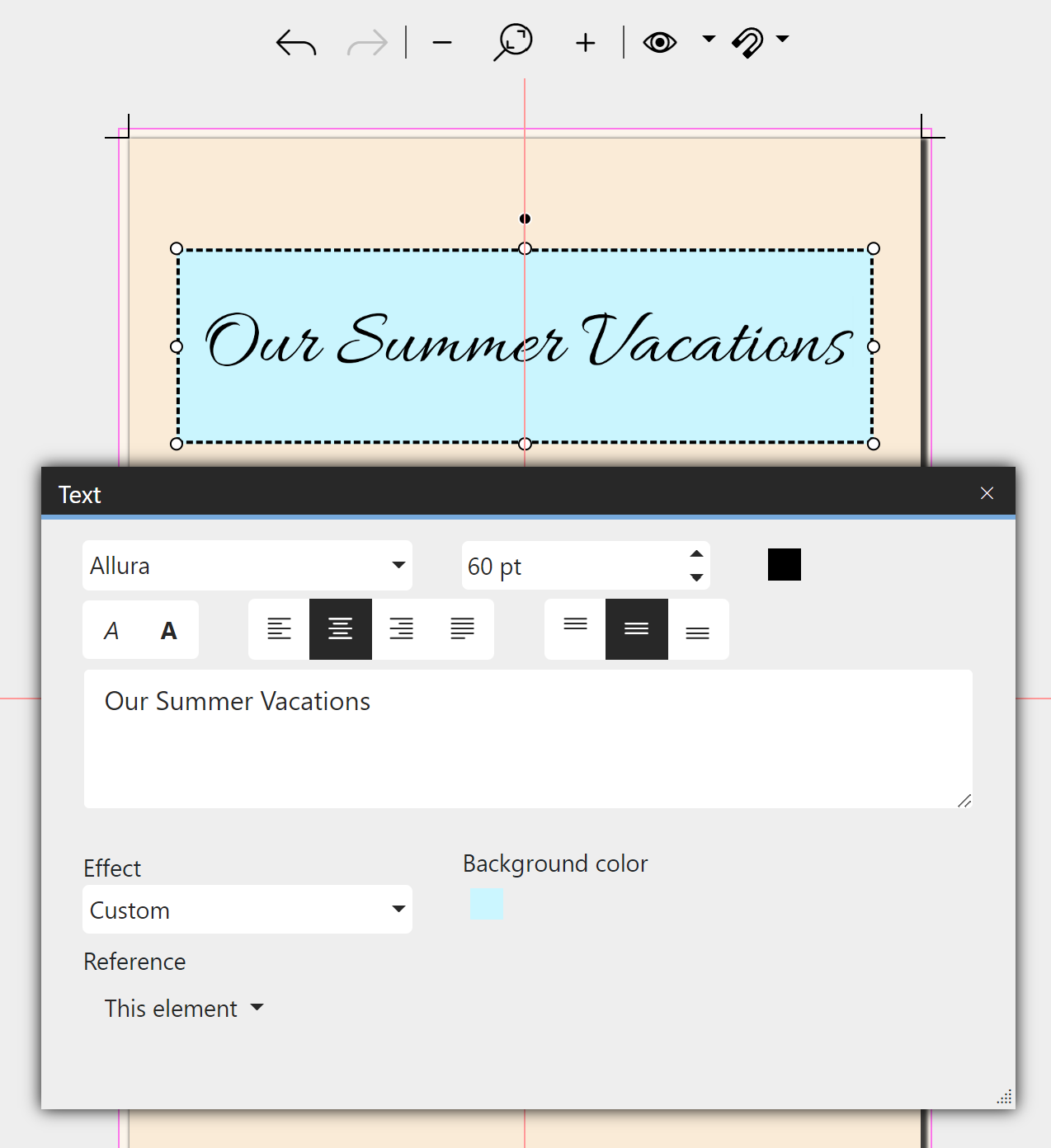 Background color for text 4. Add or change background color for textBy default, the text element has no background color or is transparent. Click the box icon in the text properties to use the color picker to apply a background color to the entire area in the selection frame. |
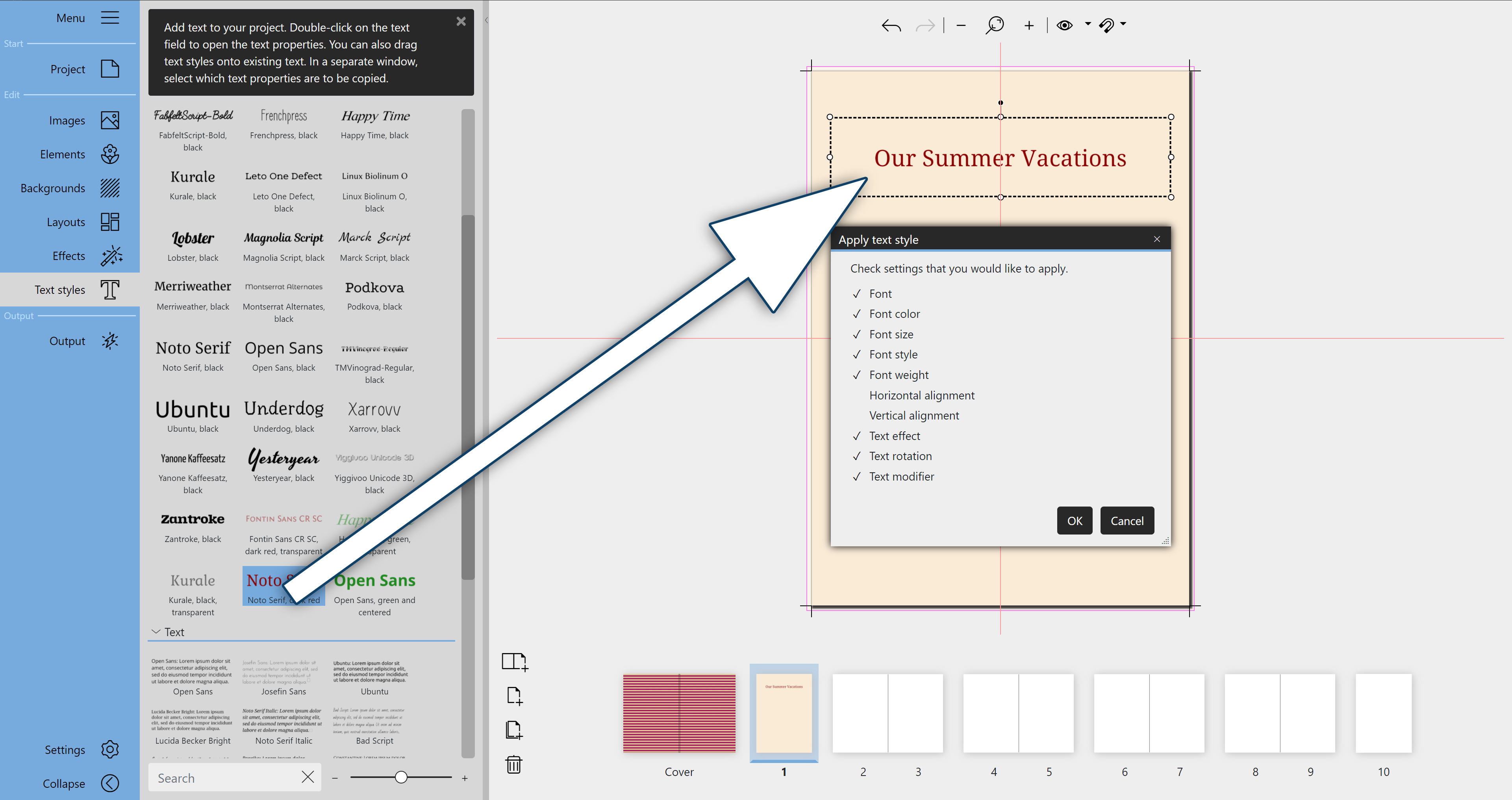
Apply new text style and inherit properties
You can also apply a text style to an existing text afterwards. To do this, drag the text style from the Toolbox onto the existing text in the Page editor.
Or, in the Page editor, select the text you want to change and double-click the new text style in the Toolbox to apply it.
In the Apply Text Style window that opens, specify whether you want to apply only some or all of the properties of the new text style to the old text style. For example, to leave the black font color in the book and not transfer the red font color from the new text style, remove the checkmark from Font color.
To copy a text to another page, right-click this text element in the Page editor and select copy or use the key combination CTRL+C . The text element is now in the clipboard of your computer. Now go to the desired page in the page overview. Paste the copied text element into the page by right-clicking and choosing Paste or by using CTRL+V .
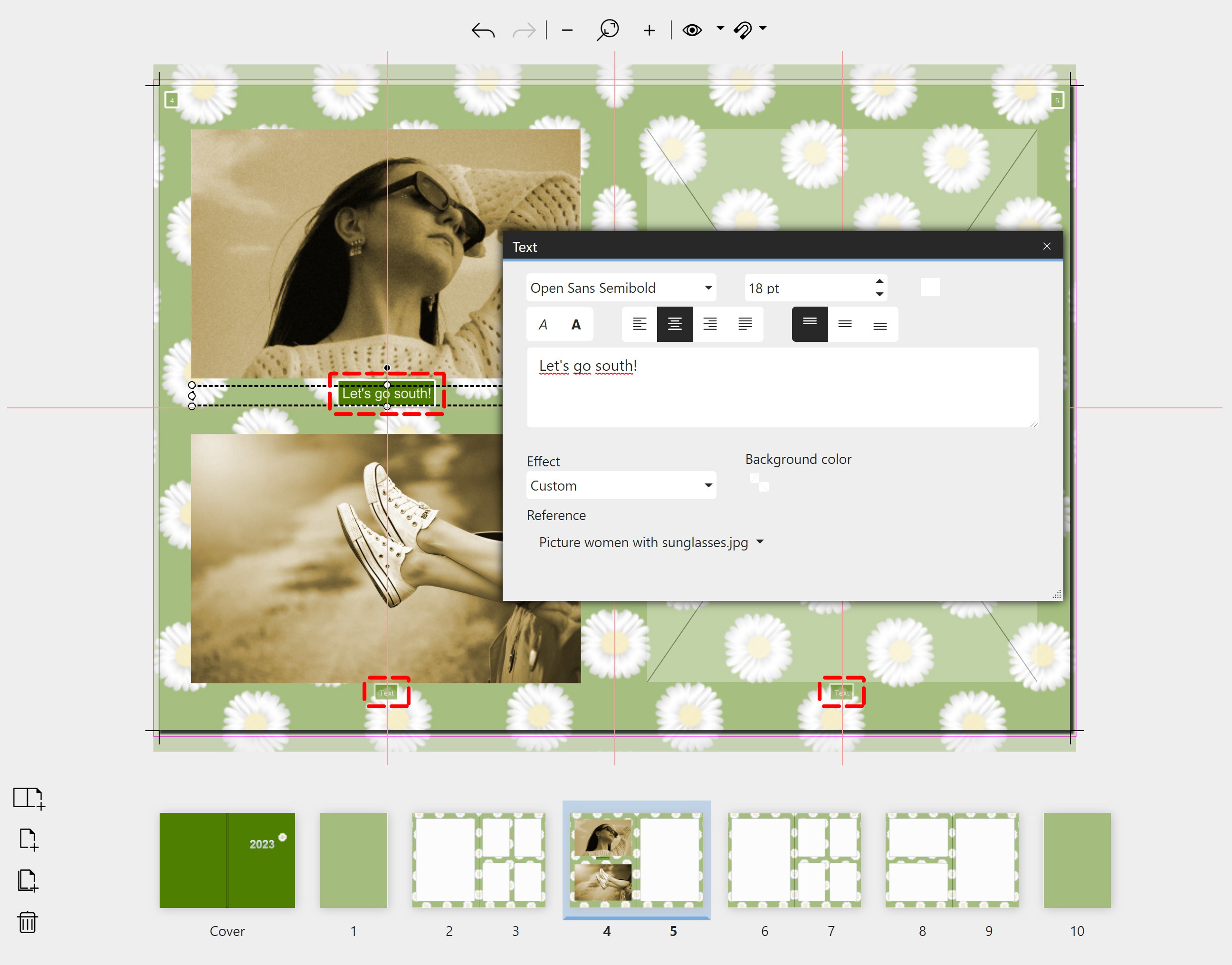
Fill placeholder with text
Some templates contain placeholders, such as the title of the photo book, year numbers, the blurb or image captions. You can fill these placeholders with content by double-clicking them or right-clicking the text element in the Page editor and going to Properties.
You can customize the placeholder text elements from the templates in size, font, font size and font color if needed.
Unfilled placeholder elements are not included in the output.
In the Properties window of a text style, you can create a reference to an image. To do this, select the image associated with the text from the selection list.
If the template style is changed and the template also contains image placeholders with associated text placeholders, the text is adopted to match the image.
This reference is also used for the use of variables. If one enters placeholder variables in the text field, the information of the image will be displayed accordingly. Example variables: %capturedate% or %captureyear%.